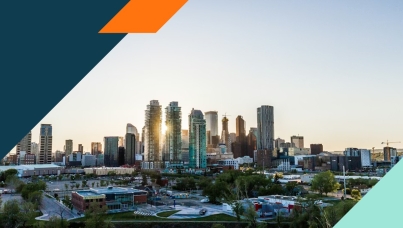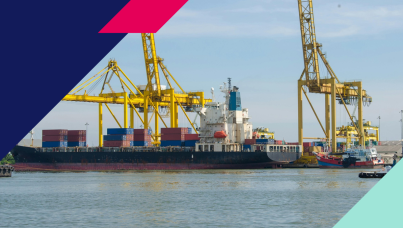How much is too much? Nearly half of Canadians think gambling ads have gotten out of hand
Toronto, ON, January 18, 2023 – Just eight months after the Ontario government launched a regulated online gambling market in their province, Ontarians and Canadians alike are making more online bets than ever — and marketing for betting platforms has hit a fever pitch, from banner ads and billboards to primetime TV.
But as the iGaming market booms, there are signs that the sheer volume of advertising could have a negative cumulative effect. New polling and social listening data from Ipsos finds that nearly half of Canadians (48%) say they agree (17% strongly; 31% somewhat) that the amount and volume of advertising is excessive and needs to be cut back.
This situation has been developing since April 2022, when Ontario’s provincial government opened a regulated online gambling market in their province, enabling dozens of “grey market” private betting companies to register as legal operators.
In the following months, online gambling has flourished in Ontario, and across the country:
- 47% of Ontario adults surveyed say they’ve done some form of online gambling across four types of activities in the past year (compared to 40% of all Canadian adults).
- 35% of Ontarians have played online casino games (e.g. slots, poker, table games); compared to 30% of all Canadians.
- 24% of Ontarians have played online bingo (compared to 20% of all Canadians).
- 30% of Ontarians have tried sports betting (compared to 22% of all Canadians).
The popularity of online casino gambling has even exceeded that of in-person betting. Before the pandemic, upwards of 40% of Canadians would report going to a casino at least once a year. In 2022, that figure dropped to 26%, compared with the 30% of Canadians who report playing casino games through an app or website.
But while the surge in publicity may be boosting the overall number of gamblers, we are also seeing signs that the marketing push is leading to ad fatigue.
Ipsos found that 63% of Canadians now agree (21% strongly; 42% somewhat) there should be limits on the amount and/or placement of advertising. This statement is agreed upon across the country — even in provinces without regulated online gambling markets — with support ranging from 59% in BC to 69% in Atlantic Canada.
When it comes to social media, critics are even more vocal. A social listening analysis conducted by Ipsos found that negative posts about sports betting advertising had increased by 820% between July 2022 and October 2022.
But the quantity of ads and sponsorships isn’t the only issue. When it comes to the quality and enjoyability of commercials themselves, Canadians are hardly more enthusiastic: 42% said the ads are not very likeable/enjoyable to watch; ranging from a high of 49% of Albertans down to a low of 36% in both BC and Atlantic Canada. The harshest criticism is from the 18–24-year-old range, with 54% agreeing that gambling ads are not likeable — the highest among all other age groups.
It’s clear that iGaming creative must be more compelling and efficient. But it also must be more relevant and regionally precise: Ipsos’ study suggests that despite the high volume of ads, few are failing to educate their audience, leading to a false sense of understanding about who can legally operate betting sites in different provinces.
When Canadians were asked which types of companies were legally permitted to operate online gambling and sports betting in their province, the results were anything but clear:
- Nationally, 37% said it was the provincial government’s lottery corporation.
- Another 6% thought it was private betting companies…
- …And 37% think it is both government and private.
- One in five simply didn’t know.
Awareness does vary by province. In Ontario, 49% said both government and private companies are eligible, which is technically correct. In Quebec, a slim majority (54%) said it’s the government who is legal to operate (also technically correct) — but many in Quebec also thought that online gambling was private, a combo of government and private, or simply don’t know. And other provinces are even less clear: Although all other regions of this country (outside of Ontario) only have the government as the legal option, many residents of those provinces think that both the government and private betting companies are permitted to operate:
- 39% in BC
- 42% in Alberta
- 29% in SK/MB,
- 27% in Atlantic Canada.
About the Study
These are some of the findings of an Ipsos poll conducted between November 17 to 22, 2022. For this survey, a sample of 2,002 Canadians aged 18+ was interviewed. Quotas and weighting were employed to ensure that the sample’s composition reflects that of the Canadian population according to census parameters. The precision of Ipsos online polls is measured using a credibility interval. In this case, the poll is accurate to within ± 2.5 percentage points, 19 times out of 20, had all Canadians aged 18+ been polled. The credibility interval will be wider among subsets of the population. All sample surveys and polls may be subject to other sources of error, including, but not limited to coverage error, and measurement error.
For more information about our Gaming Measurement study or this news release, please contact:
Scott Morasch
Senior Vice President
[email protected]
+1 778 373 5004
About Ipsos
Ipsos is one of the largest market research and polling companies globally, operating in 90 markets and employing over 18,000 people.
Our passionately curious research professionals, analysts and scientists have built unique multi-specialist capabilities that provide true understanding and powerful insights into the actions, opinions and motivations of citizens, consumers, patients, customers or employees. Our 75 solutions are based on primary data from our surveys, social media monitoring, and qualitative or observational techniques.
Our tagline "Game Changers" sums up our ambition to help our 5,000 customers move confidently through a rapidly changing world.
Founded in France in 1975, Ipsos has been listed on the Euronext Paris since July 1, 1999. The company is part of the SBF 120 and Mid-60 indices and is eligible for the Deferred Settlement Service (SRD).ISIN code FR0000073298, Reuters ISOS.PA, Bloomberg IPS:FP
www.ipsos.com




